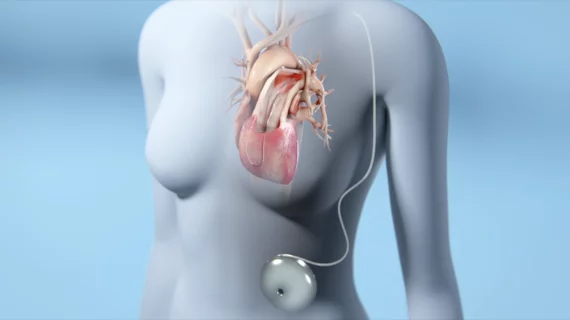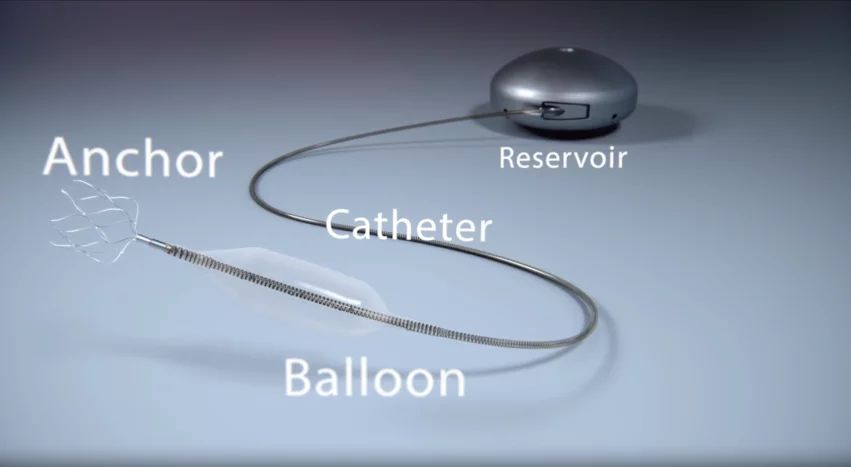World’s first patient treated with new implantable device for pulmonary hypertension
Aria CV, a Minnesota-based medical device company, announced that its new implantable device for treating pulmonary hypertension and limiting symptoms that can lead to heart failure has been successfully implanted into a patient for the very first time.
The Gen 2 Aria CV Pulmonary Hypertension System is a gas-filled balloon designed to mimic the function of healthy vessels, which helps the heart pump at a more normal rate and improves blood flow to the lungs. It is implanted percutaneously and guided directly to the patient’s main pulmonary artery.
The procedure was performed by heart failure specialist Ashwin Ravichandran, MD, and cardiothoracic surgeon Scott Hittinger, MD, at Ascension St. Vincent Cardiovascular Research Institute in Indianapolis, Indiana, on Feb. 14, 2024. It was part of the ASPIRE PH trial, an early feasibility study evaluating the device’s safety and effectiveness in patients presenting with pulmonary hypertension. ASPIRE PH is scheduled to include up to 30 patients who will undergo regular follow-up evaluations for two years. The trial was developed with help from the U.S. Food and Drug Administration’s Early Feasibility Studies Program.
“We are proud to have performed the first implant of this novel device, as it offers an alternative treatment for patients who remain significantly impacted by right heart dysfunction related to pulmonary hypertension, which has limited approved therapy options,” Ravichandran said in a statement.
“The successful patient implant of the Gen 2 system is a significant milestone in realizing our mission to improve the lives of those suffering from pulmonary hypertension, a life-threatening disease that can lead to heart failure,” added Dan Gladney, president and CEO of Aria CV. “This procedure is a testament to the dedicated ASPIRE PH team that is providing patients with a novel therapeutic option to treat this deadly condition. If approved, this technology has the potential to be lifesaving and life changing for thousands of patients with pulmonary hypertension.”


